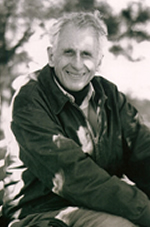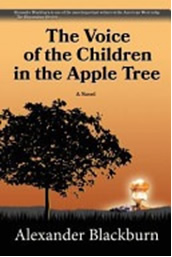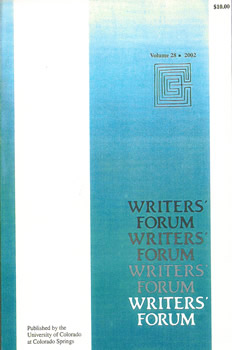
|
THE VOICE OF THE CHILDREN
The Voice of the Children in the Apple Tree, image for recovery of innocence, is the love story of “Trinc” DeRoman, a nurse emancipated from the control of wealthy New England aristocrats, and Aeneas Caldwell, atomic physicist who has risen out of poverty in the South and West. Trinc’s devotion to healing people, as when she nurses interned Japanese Americans, and Aeneas’s self-sacrificing repudiation of the atomic bomb he Comments "This major novel offers a vision of hope for the future. Filled with numerous vividly portrayed characters in a powerful story of personal emancipation from family and national limitations, the novel marks a significant contrast from the soap operas and romances which prevail in popular literature… Away from the coldness and cruelty of her wealthy parents and a family-first enclosure, Trinc moves to expanding circles of love and service. Rising out of poverty, war, and suicide, Aeneas likewise discovers an enlarging life. Each moves from varieties of exclusive Puritanism to an inclusiveness of a William Blake. And they find each other in their struggles for liberation. Trinc becomes wife and mother, and then nurse to the interned Japanese-Americans during WWII and later a nurse for the International Red Cross. Aeneas chooses physics and atomic research, for a while descending into the building of the atomic bomb with Oppenheimer in New Mexico, until rejecting its destructiveness prior to the July 15, 1945, testing. He writes and lectures on ‘The New Physics and the Coming World of Conscience.’ Their children and their growing extended family enjoy the headstart provided by parents who are in the vanguard of the New World."--Citation for the Peace Writing Award. "Blackburn has a way of making epochal issues poignant and personal, and creating characters of psychological depth that will invite worthwhile speculation on the part of those who read for pleasure, and study on the part of those of us who would trace the lineage of modern tendencies of thought to the inner life of our forebears. In Blackburn these strong characters may be seen to struggle as intelligently and knowledgeably as we must have done to escape or uphold the conventions of their day, define their purposes, imbue their acts with feelings beside those of self-interest, and besides money and property create a legacy of character and outlook which will be strong enough to shape the lives of their children." – Jeff Putnam, novelist and founding Editor of Baskerville Publishers. "It does one of my favorite things – one of the hardest things- a heavy message given with a light hand. And it is also a neat romance… I was at the wedding of Lady Chatterley and Mellors and I gave that marriage six months… The love between Trinc and Aeneas is not silly" - Joanne Greenberg, author of eighteen books of fiction, including I Never Promised You a Rose Garden. "You have a powerful story to tell. Most of my reading was focused on the areas involving Japanese Americans." – Bill Hosokawa, a retired editor of the Denver Post and foremost authority on Japanese American experience. "An epic piece of work. Epic in its use of space, epic in its use of time. You deal with big ideas and big issues, and do it, of course, with interesting people and interesting writing…. One of the things I liked best was the narrator‘s voice – generous and thoughtful of the reader, capable of soaring the heights when necessary, capable of down- to-earth writing when that was called for." – Henry Hager, novelist and Professor of Journalism, University of Missouri. “This is a real page-turner... an epic in the truest sense of the word. Think of it as ‘Downton Abbey meets J. Robert Oppenheimer.’ Blackburn takes you on a compelling journey all the way from Teddy Roosevelt's Rough Riders to the trenches of World War I, from the Swiss Alps to the stark beauty of the Taos mesa... and finally ending with the famous Trinity atomic bomb test in White Sands, New Mexico. Like "The Count of Monte Cristo", Blackburn's novel is a rip-roaring good tale you simply cannot put down. This is one of the best reads I've had in years. Highly (even urgently) recommended... this gets two enthusiastic thumbs up.” |







 Summary
Summary






